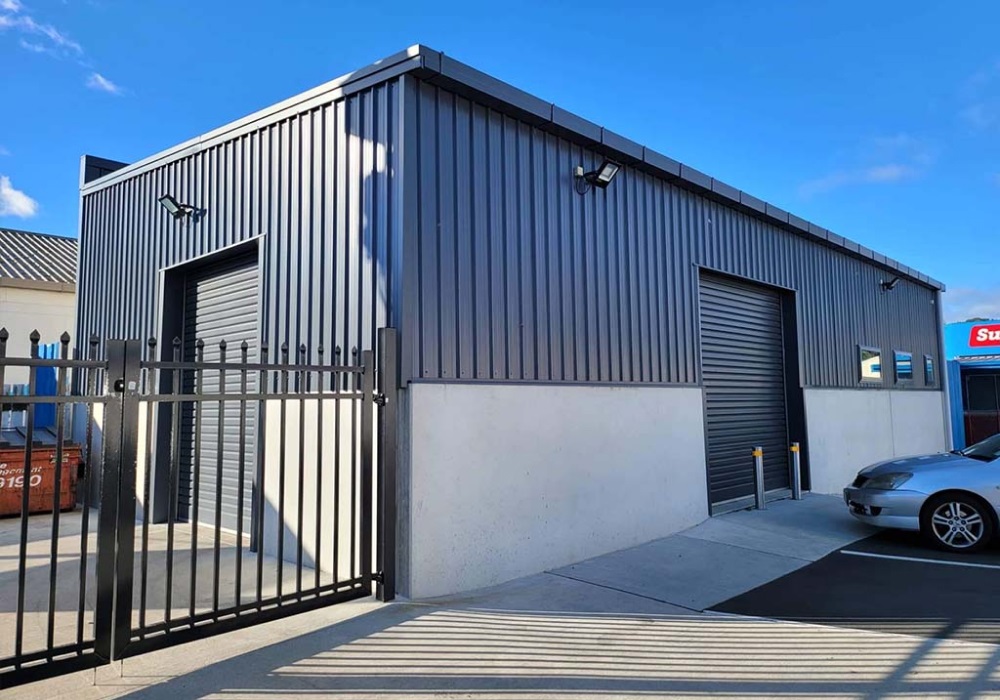
Fully Qualified Builder

3-6 Weeks of Delivery Time

Fully Customisable Roof

Guaranteed All Parts Delivered Undamaged
Industrial Sheds
Enjoy The Seclusion, Space & Style of Your Own Workshop Sheds
Your own space, for your own work.
Our expert craftsmen design and build high-quality, durableworkshop sheds that provide the perfect space for all your requirements.
With a Lysaght 20-year warranty, our products are built using only 100% Australian-made steel, ensuring strength and longevity. With 22 colour options and custom pitched roofing, you can choose the size, style, and features that best fit your requirements.
We also provide free access to 3D shed builder and professional installation services to ensure a seamless experience. Transform your outdoor space with our premium sheds! Explore a variety of durable, and functional kits perfect for storing and organizing.
What Are the Best Types of Workshop Sheds?
When it comes to the best types in Australia, there are several options to consider based on your specific needs:
Australian Steel: Known for their durability and strength, they are a popular choice. They provide excellent protection against the elements and are low-maintenance, making them ideal for heavy-duty use.
Insulated Workshop Sheds: If you require a controlled environment, insulated sheds offer temperature regulation, ensuring comfort throughout the year. They are energy-efficient and provide better noise reduction.
Customisable Workshop Sheds: Opting for a customisable shed allows you to design a space tailored to your exact requirements. You can choose the size, layout, and features such as windows, doors, shelving, and workbenches.
Prefabricated Workshop Sheds: These sheds are pre-built in a factory and delivered to your location. They offer convenience and quick installation, making them a popular choice for those who need a workshop quickly.
Multi-Purpose Workshop Sheds: If you need a versatile space that can be used for both workshop and storage purposes, consider a multi-purpose shed. These sheds provide a designated area for your work while still offering additional storage space.
Looking for more premium industrial shed options?

How Much Do Workshop Sheds Cost?
The cost in Australia can vary depending on several factors such as size, materials used, customisation options, and additional features. Generally, the price range for large sheds can be anywhere from a $10,000 – $150,000.
Smaller, basic workshop sheds made from materials like steel or wood may be more affordable, while larger or custom-designed sheds with added features and insulation tend to be on the higher end of the price range.
It’s worth noting that the cost of the shed itself may not include additional expenses such as site preparation, permits, delivery, and installation, which should be factored into your overall budget.
Workshop Shed Benefits
| ✔ Custom Pitched Roofing
They can be adjusted to suit any requirements, especially if you want the roof to match your existing building. |
✔ 100% Australian Made Steel
All our sheds are designed to withstand the harsh Australian climate. With a durable, weather-resistant Australian steel you can trust your shed to stand up to heavy use over time. |
✔ Versatility
They are versatile spaces that can be used for various purposes. Whether you’re into woodworking, metalworking, crafting, or any other hobby, they provide a dedicated area for your creative pursuits. |
| ✔ Privacy
They allow you to work in a private and distraction-free environment. You can focus on your projects without interruptions, enhancing concentration and the quality of your work. |
✔ Increased Property Value
It can add value to your property. It is an attractive feature for potential buyers who are looking for extra workspace or storage solutions. |
✔ Protection for Tools and Equipment
They provide a secure space to store your tools, equipment, and valuable items. They offer protection against theft, weather elements, and potential damage, ensuring your investments are safe. |














